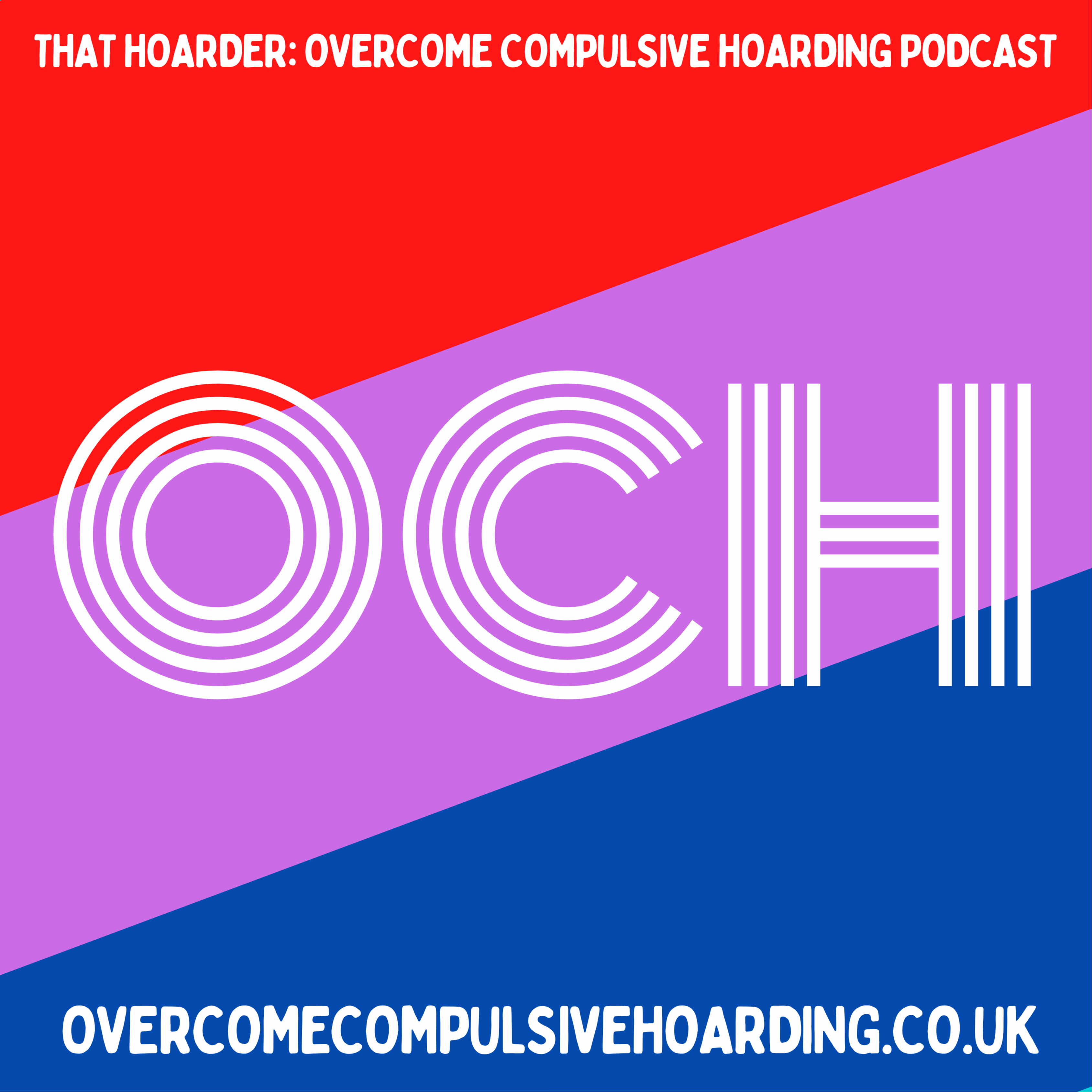Listen "#158 What does "trauma-informed" mean when it comes to hoarding? With Dr Jan Eppingstall"
Episode Synopsis
Come to a Dehoarding Accountability Zoom Session: http://www.overcomecompulsivehoarding.co.uk/ticket
Subscribe to the podcast: https://www.overcomecompulsivehoarding.co.uk/subscribe
Podcast show notes, links and transcript: http://www.overcomecompulsivehoarding.co.uk/
In today’s episode, I’m chatting with Dr. Jan Eppingstall, a Melbourne-based counsellor, about what it means to take a trauma-informed approach to hoarding disorder. Stick around as we break down why understanding trauma is crucial for effective support and treatment.
Trauma-informed approaches to understanding and treating hoarding
Importance of understanding trauma's impact
Concerns about wellbeing inquiries without adequate support preparation
Collaboration in Trauma-Informed Care
Practical Implementation for Non-Therapy Roles**
Incorporate trauma-informed principles
Sensitivity to potential triggers
Misconceptions and Communication
Fear factor surrounding trauma and its treatment
Detailed trauma disclosure unnecessary for effective support
Client Autonomy and Professional Boundaries
Respecting clients' communication preferences
Retraumatisation in Hoarding
Harm of forced clearances and strangers touching possessions
Negative impact of language and actions on hoarders
Respectful Support Practices
Building Trust
Importance of building trust before intervening in a hoarder's space
Ensuring professionals genuinely practice trauma-informed care
Over-explaining as a stress response
Broad approach of trauma-informed care
Factors influencing trauma perception
Trauma Definition
Trauma and Hoarding
Commonality of trauma in hoarding histories
A supportive framework rather than a treatment model
Five Pillars of Trauma-Informed Care
Assuming trauma backgrounds in hoarding behaviour clients
Loss of Control in Trauma
Trauma involves loss of control; care pillars help restore it
Tracking and managing nervous system responses
Importance of recognising client-specific signs
Term misuse by minimally trauma-informed trained professionals
Dangers of Misleading Trauma Informed Claims
Proper understanding of trauma to avoid harm
Non-therapists adopting trauma-informed principles
Importance of feeling present and calm during therapy
Teaching clients to feel safe and grounded
Clear Boundaries in Therapy
Trauma Types and Responses**
Variability of trauma
Explanation of retraumatisation
Managing Retraumatisation
Subscribe to the podcast: https://www.overcomecompulsivehoarding.co.uk/subscribe
Podcast show notes, links and transcript: http://www.overcomecompulsivehoarding.co.uk/
In today’s episode, I’m chatting with Dr. Jan Eppingstall, a Melbourne-based counsellor, about what it means to take a trauma-informed approach to hoarding disorder. Stick around as we break down why understanding trauma is crucial for effective support and treatment.
Trauma-informed approaches to understanding and treating hoarding
Importance of understanding trauma's impact
Concerns about wellbeing inquiries without adequate support preparation
Collaboration in Trauma-Informed Care
Practical Implementation for Non-Therapy Roles**
Incorporate trauma-informed principles
Sensitivity to potential triggers
Misconceptions and Communication
Fear factor surrounding trauma and its treatment
Detailed trauma disclosure unnecessary for effective support
Client Autonomy and Professional Boundaries
Respecting clients' communication preferences
Retraumatisation in Hoarding
Harm of forced clearances and strangers touching possessions
Negative impact of language and actions on hoarders
Respectful Support Practices
Building Trust
Importance of building trust before intervening in a hoarder's space
Ensuring professionals genuinely practice trauma-informed care
Over-explaining as a stress response
Broad approach of trauma-informed care
Factors influencing trauma perception
Trauma Definition
Trauma and Hoarding
Commonality of trauma in hoarding histories
A supportive framework rather than a treatment model
Five Pillars of Trauma-Informed Care
Assuming trauma backgrounds in hoarding behaviour clients
Loss of Control in Trauma
Trauma involves loss of control; care pillars help restore it
Tracking and managing nervous system responses
Importance of recognising client-specific signs
Term misuse by minimally trauma-informed trained professionals
Dangers of Misleading Trauma Informed Claims
Proper understanding of trauma to avoid harm
Non-therapists adopting trauma-informed principles
Importance of feeling present and calm during therapy
Teaching clients to feel safe and grounded
Clear Boundaries in Therapy
Trauma Types and Responses**
Variability of trauma
Explanation of retraumatisation
Managing Retraumatisation
 ZARZA We are Zarza, the prestigious firm behind major projects in information technology.
ZARZA We are Zarza, the prestigious firm behind major projects in information technology.
